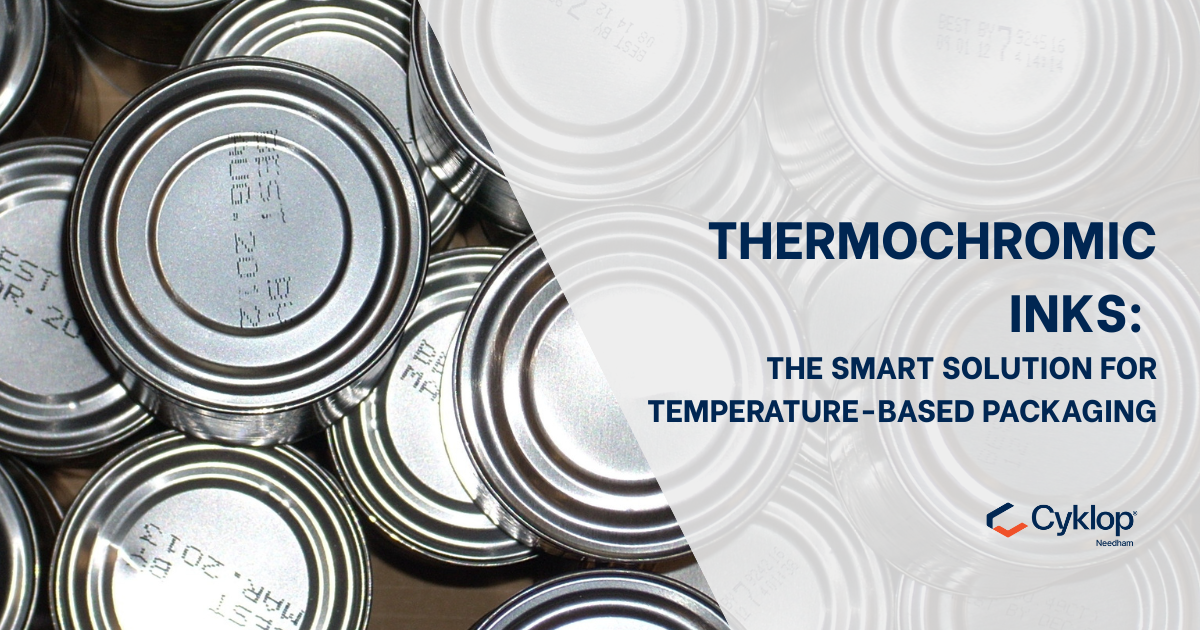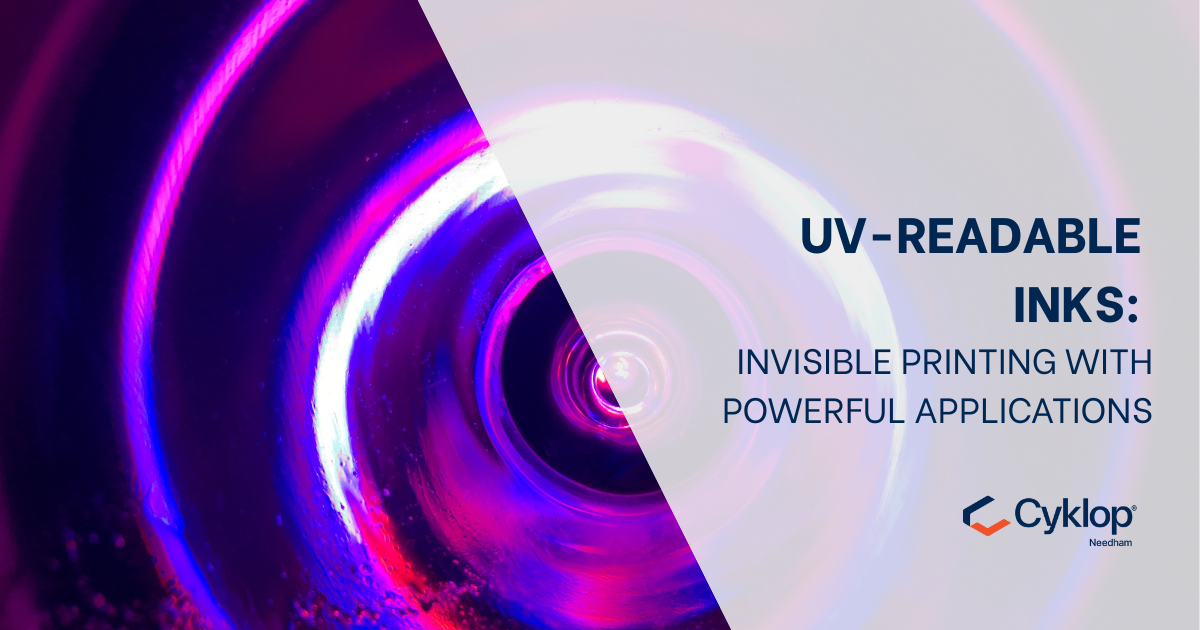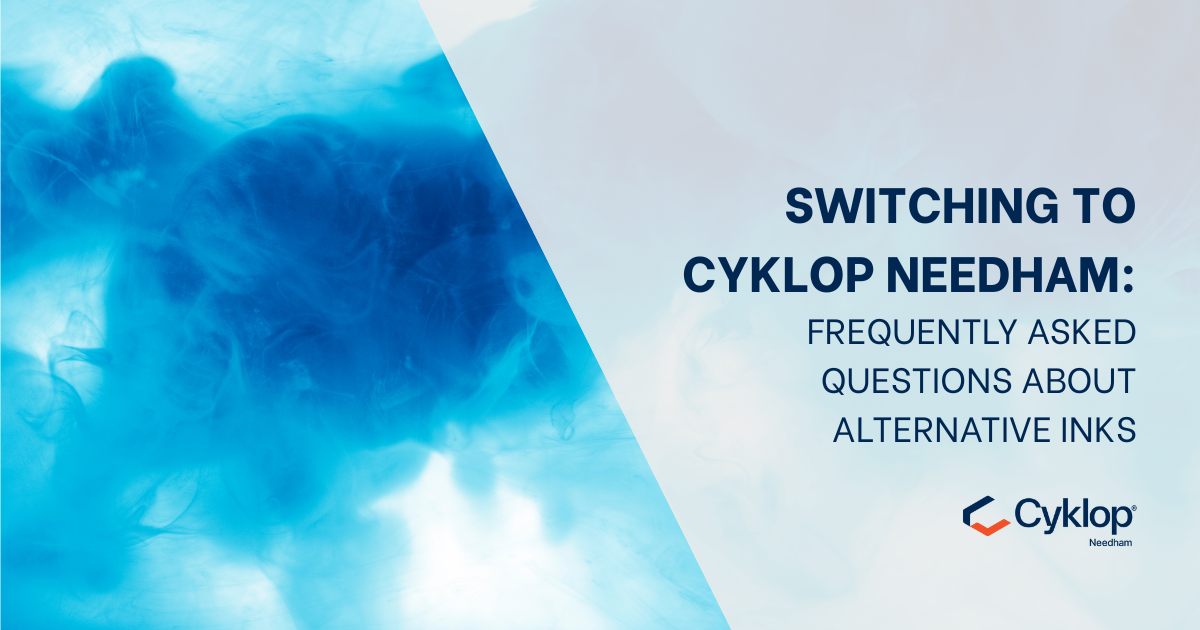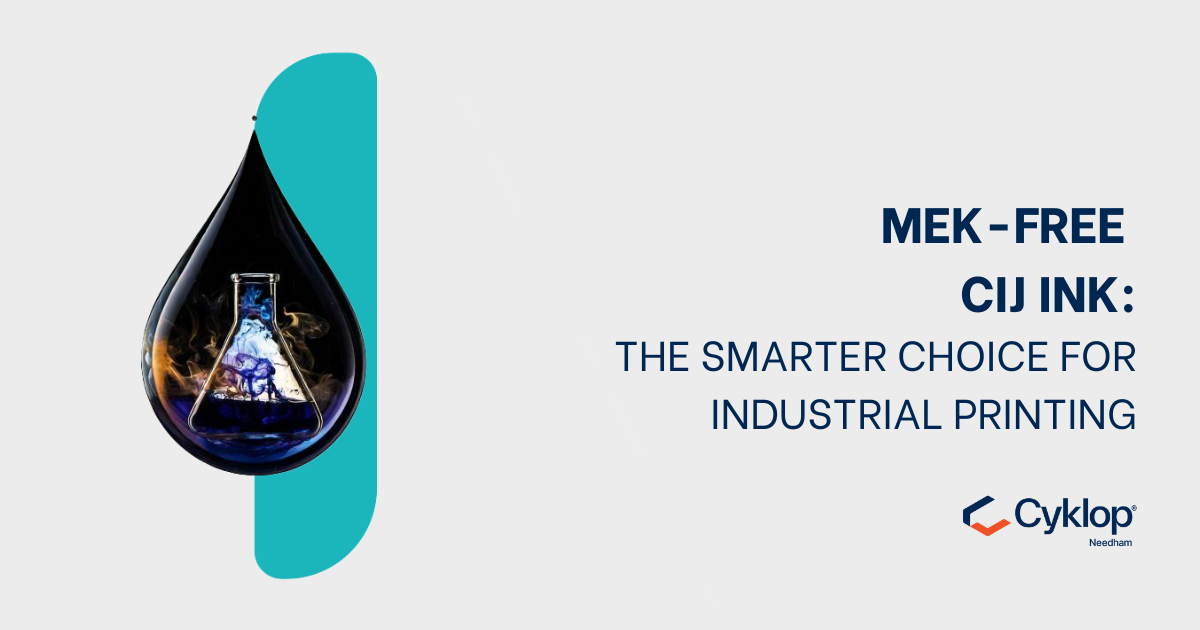UV-Readable Inks: Invisible Printing with Powerful Applications
Did you know there are also inks that only become visible under ultraviolet (UV) light? These ‘invisible inks’ are more than just a novelty. Known as
2 min read
Samuel Mcgarrigle
Oct 28, 2021 3:30:59 PM

Did you know that some inks can change colour when exposed to specific temperatures? These innovative products, known as thermochromic inks, are gaining ground in packaging processes where sterilisation is critical — especially in the food, healthcare, and pet care industries.
Thermochromic ink is designed to change colour when exposed to heat. In packaging applications, it’s often used during retort sterilisation, where filled cans or plastic pouches are heated to between 115°C and 125°C to ensure product safety.
Our OEM-compatible thermochromic ink, for example, turns from black to blue once the correct sterilisation temperature is reached. In other use cases, thermochromic inks can become transparent at a set temperature — such as on exam sheets to prove authenticity, or on pizza boxes that show the product is still hot.
As food safety regulations become more stringent, manufacturers are under pressure to demonstrate that products — particularly ready meals, baby food, and pet food — have been correctly heat-treated.
While thermochromic inks cannot confirm sterilisation has occurred, they offer a visible indicator that a package has reached the required temperature during processing. This makes them a valuable part of any compliance or quality assurance system.
For inks that change colour permanently (rather than reverting after cooling), the correct term is thermotropic ink.
Our thermochromic ink formulations are engineered to work reliably across a wide range of applications. Here's why manufacturers choose Cyklop Needham:
✔ OEM Compatible & Versatile
Our thermochromic ink is fully OEM compatible, meaning it integrates easily with your existing CIJ systems. It’s suitable for printing on both metal cans and plastic film, with no pre- or post-treatment of the packaging required.
✔ Clear Colour Change
The ink prints black and changes to vivid blue upon reaching the correct sterilisation temperature, offering excellent contrast on white print areas and immediate visual verification.
✔ Fast-Drying & Smear-Resistant
Formulated for high-speed production environments, our thermochromic ink dries in just one second and offers strong resistance to smearing.
✔ Temperature Stability
Unlike older thermochromic inks, our modern formulation won’t react to incidental heat from the printer — only to true sterilisation conditions, ensuring accuracy and reliability.
✔ Eco-Conscious Formulation
Our 03955 thermochromic ink also doubles as a MEK-free general-purpose black ink, offering a lower-impact solution without compromising performance.
Ready meals and convenience foods requiring sterilisation
Baby food and pet food with strict traceability requirements
Medical and pharmaceutical packaging
Tamper-proof exam documents and legal forms
Temperature-sensitive promotional packaging
At Cyklop Needham, we’ve spent decades providing coding and marking solutions that meet the evolving demands of manufacturers. Our thermochromic inks are trusted for their performance, stability, and clarity — even in high-pressure environments.
Want to learn more about our OEM-compatible thermochromic inks or request a sample?
UK Office: +44 (0)1948 662629
Email: enquiries@needham-ink.com
Website: www.needham-ink.com


Did you know there are also inks that only become visible under ultraviolet (UV) light? These ‘invisible inks’ are more than just a novelty. Known as

As independent UK manufacturers of a wide range of compatible industrial inks, including CIJ, TIJ, and wide-format inkjet, we understand the...

Why MEK-Free CIJ Ink Matters In today's industrial printing environments, there is an increasing demand for solutions that are not only...